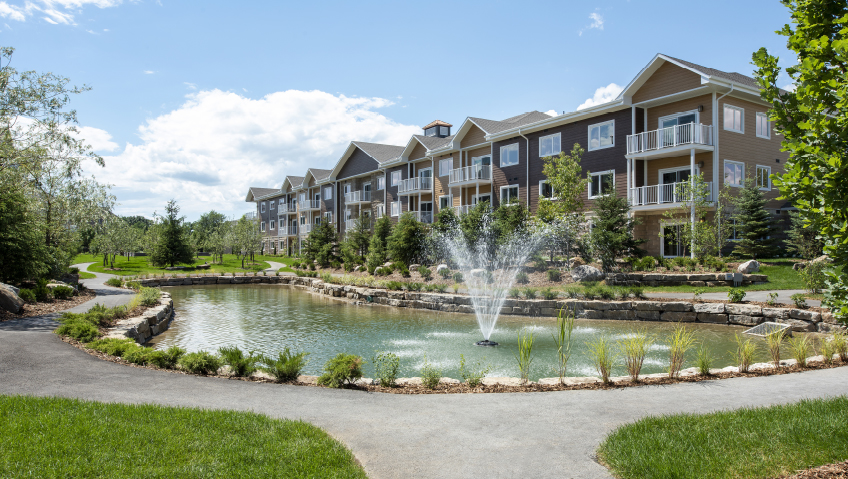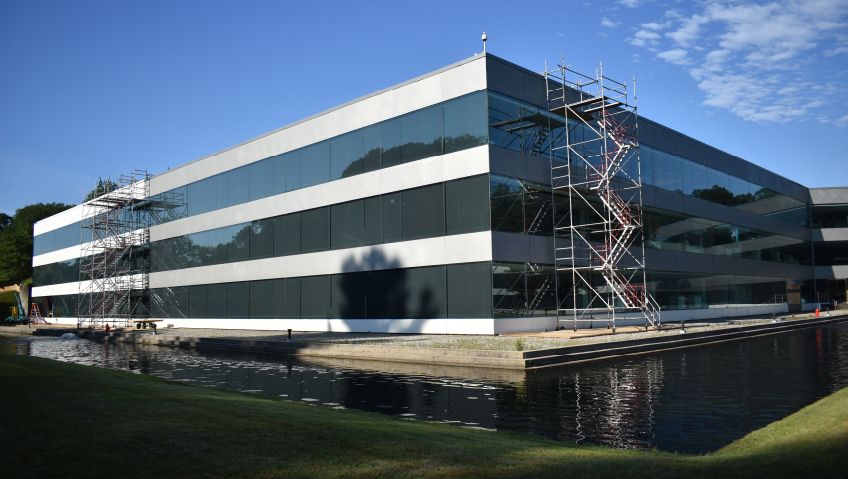Across Canada and the United States, Black-owned businesses have a lot to be proud of in many sectors, including construction and building-related businesses such as real estate and property development.
Founded in 1969, The National Association of Minority Contractors (NAMC) is the oldest minority-owned construction trade association in the United States. Others, such as the National Society of Black Engineers, By Black, the Black Contractors Association, and the National Association of Black Women in Construction, advocate for the industry, provide support, foster opportunities, build relationships with their members, and much more.
In Canada, one of the leading industry organizations is the Afro Canadian Contractors Association, better known simply as ACCA. Founded by six business owners “with a shared passion for building a diverse, equitable, inclusive construction industry,” this not-for-profit organization works to further the presence of Black, Indigenous, and people of color (BIPOC) contractors and construction companies Canada-wide.
Fighting discrimination
Sadly, no industry is immune to racism, and construction is no exception. Initially planned for launch in 2020, ACCA was delayed by the COVID-19 pandemic. Other events, meanwhile—such as the murder of 46-year-old Black American George Floyd in Minneapolis, and the discovery of racist graffiti and nooses (a grotesque symbol of hate and terror) at various construction sites in Toronto and the United States—underscored the importance of ACCA’s launch.
Officially launching in February 2021 during Black History Month, ACCA continues to “increase the presence of BIPOC contractors and construction companies across Canada,” in the organization’s words. Through ongoing support from the community, corporate partners, and government, ACCA provides educational and training resources as well as advocacy and networking opportunities. The organization “identifies contractors, subcontractors, homebuilders, and renovators to help them grow.”
ACCA’s formation came at a critical time. Richard Whyte, Senior Vice President Preconstruction and Estimating for global construction services company EllisDon, made a statement regarding anti-Black racism in the sector after nooses were found at two building sites associated with the company. “The Canadian construction industry has no choice but to admit there is a serious problem when it comes to systemic anti-Black racism, in addition to the brazen acts of hate that have been targeting Black people in the industry for far longer than what has recently come to light in the news in the past year,” Whyte told CBC News.
Addressing issues
Black-owned businesses across North America have a rich legacy, one that shows no sign of slowing down. While some of us may think of Black entrepreneurship as relatively new, members of the Black community have long made inroads in business sectors as diverse as construction and trades, real estate, health care, restaurants/retail, and technology, including Artificial Intelligence (AI) and robotics, to name a few.
Despite the many success stories, however, Black business owners still face challenges regarding prejudice, financial access, and other issues. A major 2021 survey was commissioned by the African Canadian Senate Group and Senator Colin Deacon from Nova Scotia, in collaboration with 12 prominent, Black-led business organizations across Canada and powered by the insights firm Abacus Data. Black Entrepreneurship in Canada: Pan-Canadian Survey Finds Black Entrepreneurs Face Significant Barriers to Success highlights systemic barriers to growth and success faced by Black Canadian entrepreneurs as identified in the survey, and explains that, “The responses from 342 Black entrepreneurs from across Canada revealed that systemic racism, access to capital, and the lack of a business network represent the main barriers to the growth and sustainability of Black-led and/or owned businesses.”
The disparity extends not only to business ownership but to work in the construction trades as well. “For decades, even centuries, Black workers have been underrepresented in the construction industry,” writes Deirdre Mundorf for bobvila.com. “According to information shared by the Construction Employers Association in 2023, Black workers made up just 11.1 percent of construction workers… In 2022, fewer than two percent of those registered were Black architects,” she writes. This is particularly startling—and limiting—given that it is often the architect’s vision that we ultimately see in the landscapes of our communities.
Fortunately, awareness of such issues is on the rise, thanks to organizations in Canada and the United States helping to highlight and promote the many opportunities, services, and products that come from members of the Black community.
Today, it is becoming easier to contact and patronize the many talents and services available from BIPOC-led construction businesses via online search portals, such as the Canadian Black Chamber of Commerce’s CBCC Black Business Direct. Incorporated in 2018, the CBCC is a not-for-profit organization helping Black-owned business owners generate commerce. Entering keywords like “construction” and “renovation” into the site brings up dozens of specialists in areas ranging from asbestos removal and interior demolition to custom kitchens, stucco, landscaping, precast concrete, commercial renovation, and much more.
Building a stronger industry
North America is at a crossroads. Construction-related jobs, particularly trades like bricklaying, carpentry, plumbing, and roofing, are hard on the body, and across Canada and the U.S., hundreds of thousands of construction workers—who have invested decades in their careers—are looking forward to retiring soon. In Canada, an estimated 300,000 workers will trade in their steel-toe boots for slippers this year. Too few skilled workers in the wings, about a quarter of a million newcomers to Canada just in the first quarter, and—according to some—overly-ambitious government promises of new housing have created a situation nothing less than dire.
With the building sector turned on its head during the COVID-19 pandemic and many projects brought to a halt, some long-time workers changed careers entirely. Even today, more construction workers are leaving the field than entering, and some, such as Assistant Chief Economist for RBC Economics, Robert Hogue, say that Canada would benefit from more than half a million more construction workers between now and 2030.
Like a pot of water about to boil over, North America’s construction crisis has been years in the making. A perceived lack of interest on the part of elementary and high schools in much-needed trades like carpentry and welding over the decades has seen shop classes all but eliminated. Many public schools have taken a dismissive view of once-common courses like woodworking in favor of steering students toward white-collar careers instead, an approach that ignores the robust opportunities and strong paths to leadership that exist in the construction industry.
Along with initiatives like accelerated training and welcoming more women and new Canadians into the trades, Black-owned construction businesses are part of the solution. While initiatives like improving productivity through Artificial Intelligence (AI) and modular building/preconstruction can help speed up the building process, nothing is more welcome than more skilled boots on the ground and hands on the tools. Getting more young people interested in the trades is the first step to building pipelines of talent and ownership—and ultimately, a more diverse and inclusive industry—and it can’t come soon enough.






